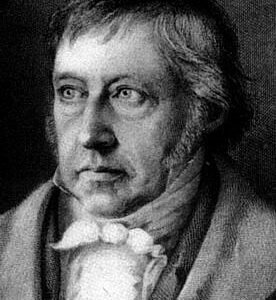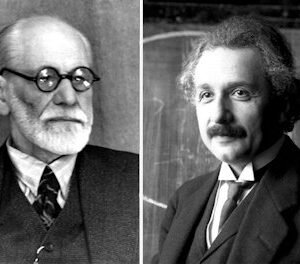Përshkrimi
Ivo Andrić – The bridge on the Drina, 525 faqe në anglisht
Ivo Andrić është një shkrimtar jugosllav me origjinë kroate, i cili u angazhua në lëvizje nacionaliste serbo-kroate gjatë kohës kur ishte student. Një shok i tij vrau arkidukën Ferdinand, që inicoi fillimin e Luftës I Botërore. Për këtë arsye dhe dyshimeve për komplot, ai u arrestua nga autoritetet austriake, por u lirua për mungesë faktesh në vitin 1915. Gjatë luftës së II Botërore, ai jetoi në apartamentin e një shoku të tij në Beograd, si në në arrest shtëpiak, dhe filloi të shkruiantr librat e tij, sidomos librin në fjalë Ura në Drin.
Në vitin 1961, Komiteti i Nobelit i njohu atij Çmimin Nobel në Letërsi, për “forcën epike me të cilën ai ka gjurmuar tema dhe ka përshkruar fatet njerëzore të nxjerra nga historia e vendit të tij“, kryesisht për historitë që ai shkroi për pushtimin osman të Bosnjes, ku ndër to është edhe subjekti i librit Ura në Drin (Ura Mehmed Paša Sokolović, eponimi i urë në Drin – në foton e kopertinës). Ivo Andrić ishte shkrimtari i vetëm jugosllav që mori Çmimin Nobel dhe kjo i siguroi atij shumë famë e privilegje.
Bio, Wikipedia
 Ivo Andrić (Serbian Cyrillic: Иво Андрић, pronounced [ǐːʋo ǎːndritɕ]; born Ivan Andrić; 9 October 1892 – 13 March 1975) was a Yugoslav novelist, poet and short story writer who won the Nobel Prize in Literature in 1961. His writings dealt mainly with life in his native Bosnia under Ottoman rule. Andrić’s parents were both Catholic Croats.
Ivo Andrić (Serbian Cyrillic: Иво Андрић, pronounced [ǐːʋo ǎːndritɕ]; born Ivan Andrić; 9 October 1892 – 13 March 1975) was a Yugoslav novelist, poet and short story writer who won the Nobel Prize in Literature in 1961. His writings dealt mainly with life in his native Bosnia under Ottoman rule. Andrić’s parents were both Catholic Croats.
Born in Travnik in Austria-Hungary, modern-day Bosnia and Herzegovina, Andrić attended high school in Sarajevo, where he became an active member of several South Slav national youth organizations. Following the assassination of Archduke Franz Ferdinand in June 1914, Andrić was arrested and imprisoned by the Austro-Hungarian police, who suspected his involvement in the plot. As the authorities were unable to build a strong case against him, he spent much of the war under house arrest, only being released following a general amnesty for such cases in July 1917. After the war, he studied South Slavic history and literature at universities in Zagreb and Graz, eventually attaining his PhD in Graz in 1924. He worked in the diplomatic service of the Kingdom of Yugoslavia from 1920 to 1923 and again from 1924 to 1941. In 1939, he became Yugoslavia’s ambassador to Germany, but his tenure ended in April 1941 with the German-led invasion of his country. Shortly after the invasion, Andrić returned to German-occupied Belgrade. He lived quietly in a friend’s apartment for the duration of World War II, in conditions likened by some biographers to house arrest, and wrote some of his most important works, including Na Drini ćuprija (The Bridge on the Drina) – the subject of this book.
Following the war, Andrić was named to a number of ceremonial posts in Yugoslavia, which had since come under communist rule. In 1961, the Nobel Committee awarded him the Nobel Prize in Literature, selecting him over writers such as J. R. R. Tolkien, Robert Frost, John Steinbeck and E. M. Forster. The Committee cited “the epic force with which he… traced themes and depicted human destinies drawn from his country’s history”. Afterwards, Andrić’s works found an international audience and were translated into a number of languages. In subsequent years, he received a number of awards in his native country. Andrić’s health declined substantially in late 1974 and he died in Belgrade the following March.
In the years following Andrić’s death, the Belgrade apartment where he spent much of World War II was converted into a museum and a nearby street corner was named in his honour. A number of other cities in the former Yugoslavia also have streets bearing his name. In 2012, filmmaker Emir Kusturica began construction of an ethno-town in eastern Bosnia that is named after Andrić. As Yugoslavia’s only Nobel Prize-winning writer, Andrić was well known and respected in his native country during his lifetime. In Bosnia and Herzegovina, beginning in the 1950s and continuing past the breakup of Yugoslavia, his works have been disparaged by Bosniak literary critics for their supposed anti-Muslim bias. In Croatia, his works had occasionally been blacklisted following Yugoslavia’s dissolution in the 1990s, but were rehabilitated by the literary community. He is highly regarded in Serbia for his contributions to Serbian literature.











Rishikime
Nuk ka rishikime ende.